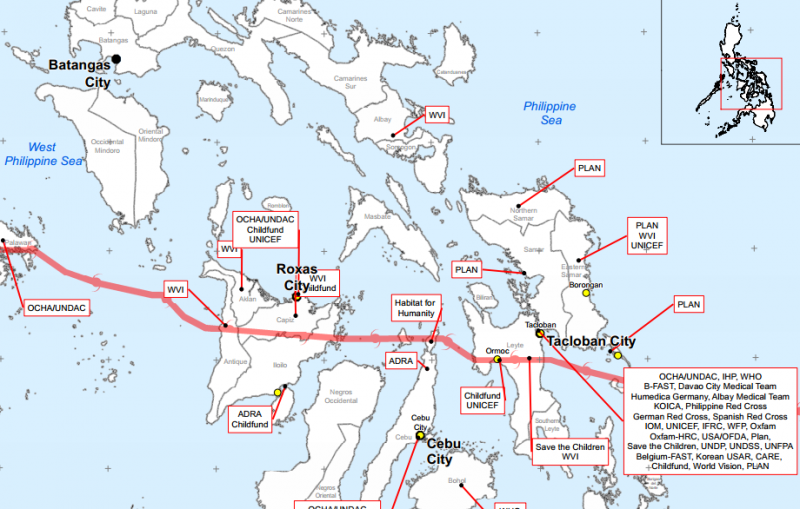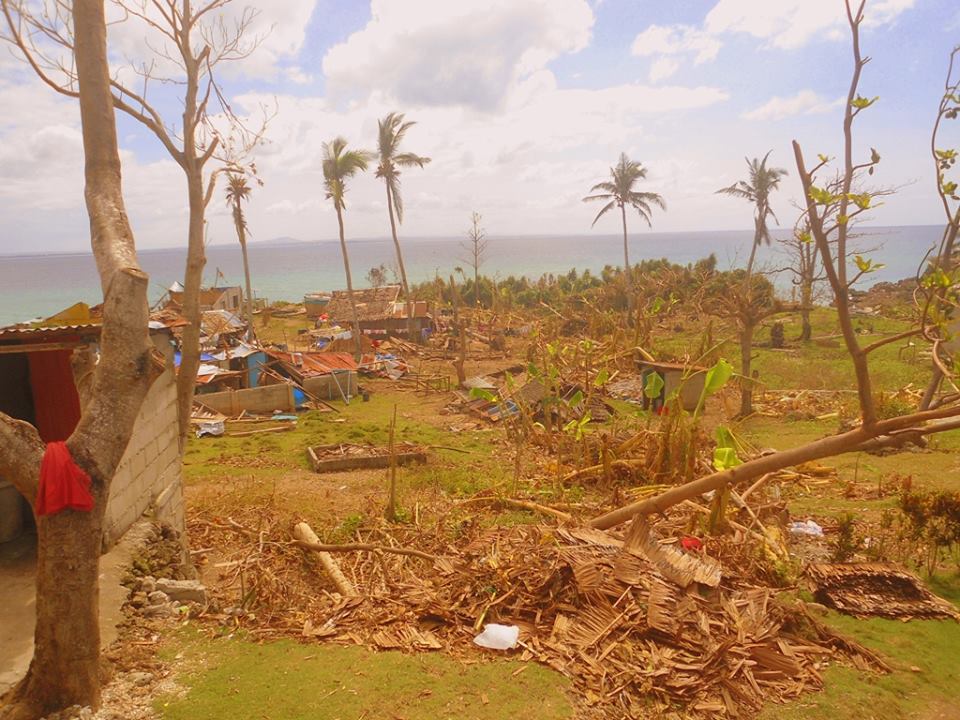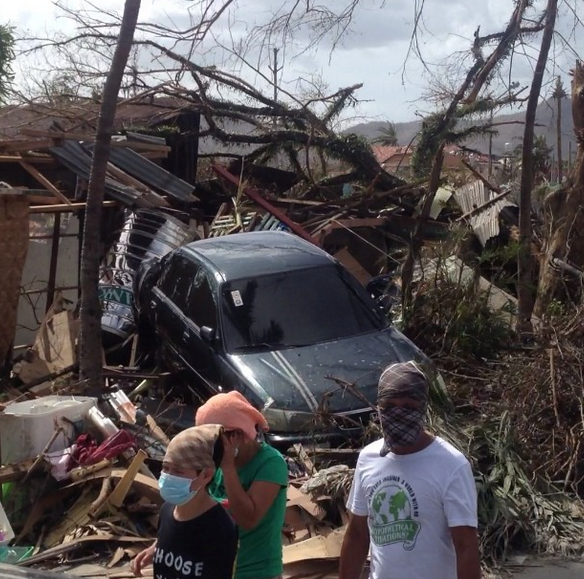Also see our Special Coverage Haiyan Devastates the Philippines
The massive destruction wrought by super typhoon Haiyan (Yolanda) in central Philippines has intensified the call for greater global action to address the harsh impact of climate change in the world especially in vulnerable small island nations.
Yeb Sano, the Philippine government’s lead negotiator at the Warsaw climate talks, became the voice of many poor nations which have been demanding the ratification of more effective pollution controls. Aside from delivering a well-applauded speech at the UN conference, Yeb also created an online petition asking netizens to stand in solidarity will all victims of climate change. As of this writing, the petition already has more than 700 thousand signatures:
Stand in solidarity with the people of the Philippines and all victims of climate change worldwide. Together our voices can push the governments meeting at the UN climate summit happening now to ratchet up pollution controls and help poorer communities with funding.
The question that will determine our survival is: can humanity rise to the occasion? I still believe we can.
Haiyan wiped out entire villages in Samar and Leyte provinces and displaced more than eight million people in the Visayas islands. It caused a storm surge killing thousands in an instant.
Many Filipinos are already urging the government to take decisive actions in relation to the country’s preparation for bigger natural disasters caused by climate change. Tony La Vina of Ateneo University believes that adaptation is not enough:
Yolanda’s message is that we can never adapt adequately to climate change. But still, we do not want to have many of our islands decimated regularly and for our people to continually start from scratch losing homes and livelihoods.
Adaptation clearly is not enough and we have to make sure that the human causes for climate change – greenhouse gas emissions coming from the use fossil fuels and land use activities – are mitigated. And while mitigation must be global, we in the Philippines must do our share if we are to have the moral high ground in asking rich countries to reduce their emissions and to help us adapt and in times of disaster.
Environment crusader Macky Lovina reminds the United States government that more than sending humanitarian assistance to the Philippines, it must prioritize the reduction of its carbon emissions:
Now we love the US? I have nothing against Americans, after all I've lived there practically half my life, and I'm grateful to all the men and women who have gone out of they're way to bring relief to disaster struck areas, but let's not forget one thing… The reason Typhoon Yolanda is here, and it will be here again and again, is largely because of US govn't policy that encourages and aggressively promotes the fossil fuel, mining and conventional agriculture industries. So when I see American politicians making sentimental speeches about the long friendship between the US and the Philippines, I know it's not real. After all if they really had the Philippines well being in mind then they would do their best to slow down Climate Change. In fact they're doing the opposite, knowing full well that islands like the Philippines will be the hardest hit.
On Twitter, Jason appeals to other countries:
I hope that those who countries who pledged for the victims of Yolanda will also sign the Agreement on Climate Change.
— Jason Tupas (@kayeSIjason) November 22, 2013

This useful map of the UN Office for the Coordination of Humanitarian Affairs shows the devastated areas and relief efforts in the Visayas
Meawhile, Enteng Bautista links the slow response of the government in mobilizing relief and rescue operations to the private control of the transport and heavy industry sectors:
In times of national disaster or emergency the government should have the power to mobilize and direct the assets and resources to help the people such as ships, planes, power barges, mobile communication and medical facilities. But why it could not and just hoping for the ‘soft heart’ of select few? Precisely because it is privately owned and controlled by the select few and powerful.
This video shows houses being swept away in Hernani, Samar during the storm:
Donations are still needed by typhoon victims two weeks after the storm hit the country. Aid distribution is getting faster but there are still many areas which are lacking in basic services. Waray Bayaay: Relief and Donation Drive for Leyte asks for bike donations to facilitate faster distribution of relief and sending of information in remote areas:
…we would like to equip the Leytenos with bikes as public transport is still unavailable to most. They need it to get relief goods from city centers or command posts (most who live in the most interior parts of the city or far barrios are not able to get because of inaccessibility); they need bikes to get to work or get food; they need it to deliver news (there is no network signal outside of Tacloban), whether to report illness or danger or relatives looking for them. Imagine walking 18 kilometers just to get to Tacloban City!
Chronicles of a Nursing Mom warns against sending of formula milk in evacuation centers:
I am truly saddened because the Yolanda situation has proven that we are already living in a formula feeding culture. Earlier today, a fellow breastfeeding mom messaged me that there are evacuees now in Villamor Airbase and they will be helping out. Her friend called out for formula donations because there were moms with babies.
Interestingly, popular messaging app Line is collecting money for Haiyan relief via a new sticker pack.









4 comments
Why should we believe you climate blame believing news editors when all of science is in full consensus that it only COULD not WILL be a crisis and not one IPCC warning agrees on anything beyond just “could be” and not one says; “inevitable” or just WILL be a crisis.